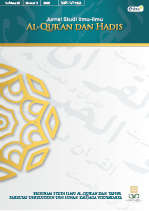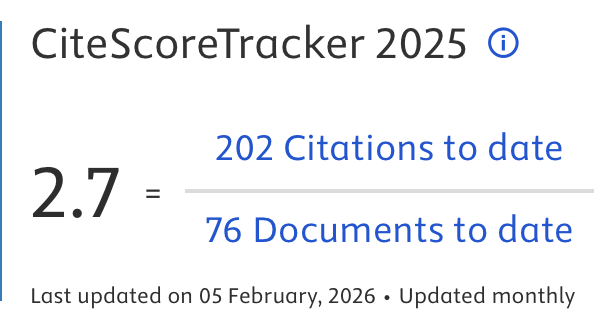Effective Management to Support Tahfidz Al-Qur’ān Course in Indonesian Islamic Higher Education
DOI:
https://doi.org/10.14421/qh.v23i2.3046Keywords:
Manajemen, Tahfidz, Perguruan TinggiAbstract
The purpose of this study is (was) to determine the management of the tahfidz al-Qur’ān course at UIN Sunan Kalijaga Yogyakarta and UIN Malang and to find out the factors that influence the differences between the two and their relevance in the development of tahfidz al-Qur’ān courses in the two universities. This type of research was included into the empirical-qualitative category using Miles and Huberman-style analysis. The data collection was taken from interviews, observations and documentation. The standards of the management theory as the reference were the five principles set by Fayol. The results of this study present that the management of the tahfidz al-Qur’an course at UIN Sunan Kalijaga Yogyakarta and UIN Malang had several similarities and differences in terms of planning. Each lecturer provided the explanations related to targets and memorization and memorization deposit mechanisms. The differences from the two were only the methods and targets set. As for the Organizing, Commanding, Coordinating and Controlling sides, it was broadly the same. What distinguished was only the technical implementation. The factors that influenced the existence of differences in the management of the the tahfidz al-Qur’an course were the absence of standard provisions and rules on the methods in teaching tahfidz al-Qur’an courses between the two universities. Tahfidz course management has relevance to the development into the Department of Qur’anic Studies matters in terms of graduate achievement and competence. This research gives a message that the lecturers of tahfidz courses have to make special strategies that can be applied uniformly by every tahfidz course supervisor in higher education.
References
Abu Fadl Abd al-Rahman al-Razi, Fadail al-Qur’an wa Tilawatuh (Bairut: Dar al- Bashair, 1994).
Adli Abd al-Rauf al-Ghazali, Kaif Tataathar bi al-Qur’an? wa Kaif Tahfadzhu (Mesir: Dar al-Sumbulah, 2014),
Ahmad Kamil, Tajuddin Nur, etc. Analysis of the Online Tahfidz al-Qur’an Program in Improving Islamic Education Learning Outcomes. Vol. 4 No. 2 (2021): ENDLESS : International Journal of Future Studies DOI: https://doi.org/10.54783/endless.v4i2.107
Alexander, Paul Isiko. “Religious Construction of Disease: An Exploratory Appraisal of Religious Responses to the COVID-19 Pandemic in Uganda.” Journal of African Studies and Development (2020).
Amirullah Sarbini, Manajeman Strategi, Teori, Konsep, Kinerja (Jakarta: Pustaka al- Kautsar, 2016), 6.
Al-Attas, Reem. “The Qur’an and Memory a (Study of the Effect of Religiosity and Memorizing Qur’an as a Factor on Memory).” Alzheimer’s & Dementia 7, no. 4 (July 1, 2011): S641.
Aziz, Mu’Azah Md, Wan Mahani Abdullah, Ainul Maulid Ahmad, Mohd Aswad Amat Mushim, and Muhammad Shahrizan Shahrudin. “Comparison between Conventional Method and Modern Technology in Al-Qur’an Memorization.” International Journal of Recent Technology and Engineering (2019).
Burhan Bungin, Penelitian Kualitatif (Jakarta: Pranada Media Group, 2007), 108.
Cahyadi, Ani, Hendryadi, Sri Widyastuti, Vika Nurul Mufidah, and Achmadi. “Emergency Remote Teaching Evaluation of the Higher Education in Indonesia.” Heliyon 7, no. 8 (August 1, 2021): e07788.
Departemen Agama RI, Al-Qur’an dan Terjemahnya (Bandung: CV Diponegoro, 2008), 365.
Departemen Agama RI, Al-Qur’an dan Terjemahnya (Bandung: CV Diponegoro, 2008), 365.
Eko Supeno, Evolusi Pemikiran Manajemen: Sebuah Tinjauan Wren dan Bedeian, Jurnal Jejaring Administrasi Publik, Vol. IV, No. 1, (Januari, 2012), 57.
Filimonau, Viachaslau, Hafize Fidan, Iordanka Alexieva, Stefan Dragoev, and Denitsa Dimitrova Marinova. “Restaurant Food Waste and the Determinants of Its Effective Management in Bulgaria: An Exploratory Case Study of Restaurants in Plovdiv.” Tourism Management Perspectives 32 (October 1, 2019): 100577.
Gade, Anna M. Perfection Makes Practice : Learning, Emotion, and the Recited Qurʼān in Indonesia. University of Hawai’i Press, 2004.
Imam Shofwan, Tri Joko Raharjo, etc. Non-Formal Learning Strategy Based On Tahfidz And Character In The Primary School. International Journal Of Scientific & Technology Research Volume 8, Issue 10, October 2019
Indra Keswara, Pengelolaan Pembelajaran Tahfidzul Qur’an (Menghafal al-Qur’an) di Pondok Pesantren al-Husain Magelang, Jurnal Hanata Widya, Vol. 6. No. 2, (Juli, 2017), 62.
Introduction (New York: Logman, 2003), 48.
Luxfi Rifandi dan Lumijan Hadi Susarno, Pengelolaan Kurikulum Menghafal al-Qur’an Pondok Pesantren Madrastul Qur’an Tebuiring Jombang, Jurnal Teknologi Pendidikan, Vol. 1, No. 1, (Juli, 2018), 7.
Mulyaningsih, Tri, Sarah Dong, Riyana Miranti, Anne Daly, and Yunastiti Purwaningsih. “Targeted Scholarship for Higher Education and Academic Performance: Evidence from Indonesia.” International Journal of Educational Development 88 (January 1, 2022): 102510.
Mc Millan, James H, dan Sally Schumacher, Research in Education: A Conceptual Introduction
Moh. Nazir, Metode Penelitian (Bogor: Galhia Indonesia, 2005), 146. Muhammad Tanzeh, Pengantar Metode Penelitian (Yogyakarta: Teras, 2009), 66.
Sugiono, Memahami Penelitian Kualitatif (Bandung: CV Alfabeta, 2008), 91-99. http://ushuluddin.uin-suka.ac.id/id/page/prodi/297-Fakultas
Muhammad Riduan, Mustolah Maufur, Omon Abdurakhman, Manajemen Program Tahfizhl al-Qur’an Pada Pondok Pesantren Modern, Jurnal Ta’dibi, Vol. 5, No. 1, (April, 2016), 21.
Muhammad Tanzeh, Pengantar Metode Penelitian (Yogyakarta: Teras, 2009),
Noeng Muhajir, Metodologi Penelitian Kualitatif (Yogyakarta: Rake Sarasih, 2006), 9
Burhan Bungin, Penelitian Kualitatif (Jakarta: Pranada Media Group, 2007), 108.
Ramdane, T., & Souad, M. (2017). Towards a New Approach in the Teaching of the Holy Qur’an. International Journal of Humanities and Social Science, 31(10), 143–152.
Risma Nurkarima, Ananlisis Pengelolaan Pembelajaran Tahsin dan Tahfidz al-Qur’an dengan Metode Talaqqi di Kelas VIII SMPIT Qordova Rencaekek Bandung, Prosiding Penelitian Sivitas Akademika UNISBA, Gemobang 2, (2014-2015), 170-171.
Setyabudi Indartono, Pengantar Manajemen: Character Inside (Yogyakarta: Fakultas Ekonomi Universitas Negeri Yogyakarta, t.t), 26.
Suwito, Sistem Menghafal Cepat al-Qur’an 40 Hari Untuk 30 Juz (Studi di Ma’had Tahfidz al-Qur’an di Dawuhan Purbalingga), Penelitian Individu, (IAIN Purwokerto, 2016), 81-82.
Strokal, M., T. Kahil, Y. Wada, J. Albiac, Z. Bai, T. Ermolieva, S. Langan, et al. “Cost-Effective Management of Coastal Eutrophication: A Case Study for the Yangtze River Basin.” Resources, Conservation and Recycling 154 (March 1, 2020): 104635.
Syarifuddin, Manajemen Lembaga Pendidikan Islam (Jakarta: PT Ciputat Press, 2005), 61.
Thamrin, Husni, and Endang Wahyu Pamungkas. “A Rule Based SWOT Analysis Application: A Case Study for Indonesian Higher Education Institution.” Procedia Computer Science 116 (January 1, 2017): 144–150.
T. Handoko Hani, Manajemen (Yogyakarta: BPFE, 2014), 24.
Wahyu Eko Hariyanti, Metode Menghafal al-Qur’an Pada Anak Usia Dini (Studi Kasus di TKIT Yaa Bunayya dan RA Darussalam Yogyakarta), (UIN Sunan Kalijaga – Tesis, 2017), 137.
Whitley, Gregory Adam, Pippa Hemingway, Graham Richard Law, Caitlin Wilson, and Aloysius Niroshan Siriwardena. “Predictors of Effective Management of Acute Pain in Children within a UK Ambulance Service: A Cross-Sectional Study.” The American Journal of Emergency Medicine 38, no. 7 (July 1, 2020): 1424–1430.
Yusanto, Ismail. Pengantar Manajemen Syariat (Jakarta: Khairul Bayan, 2003), 44.
Yusuf Hanafi, Nurul Murtadho, etc. Student’s and Instructor’s Perception toward the Effectiveness of E-BBQ Enhances Al-Qur’an Reading Ability. International Journal of Instruction. Vol.12, No.3. . July 2019
Downloads
Published
Issue
Section
License
Copyright (c) 2022 nasrulloh nasrulloh

This work is licensed under a Creative Commons Attribution-NonCommercial-NoDerivatives 4.0 International License.
Publishing your paper with Jurnal Studi Ilmu-ilmu al-Qur'an dan Hadis means that the author or authors retain the copyright in the paper. Jurnal Studi Ilmu-ilmu al-Qur'an dan Hadis uses license CC-BY-NC-ND or an equivalent license as the optimal license for the publication, distribution, use, and reuse of scholarly works. This license permits anyone to copy and redistribute the material in any medium or format and must give appropriate credit, provide a link to the license, and indicate if changes were made. If you remix, translate, transform or build upon the material you may use it for private use only and not for distribution. Jurnal Studi Ilmu-ilmu al-Qur'an dan Hadis granted an exclusive non-commercial reuse license by the author(s), but the author(s) are able to put the paper onto a website, distribute it to colleagues, give it to students, use it in your thesis, etc, so long as the use is not directed at a commercial advantage or toward private monetary gain. The author(s) can reuse the figures and tables and other information contained in their paper published by Jurnal Studi Ilmu-ilmu al-Qur'an dan Hadis in future papers or work without having to ask anyone for permission, provided that the figures, tables, or other information that is included in the new paper or work properly references the published paper as the source of the figures, tables or other information, and the new paper or work is not direct at a private monetary gain or commercial advantage.
Jurnal Studi Ilmu-ilmu al-Qur'an dan Hadis journal Open Acces articles are distrubuted under the Creative Commons Attribution-NonCommercial-NoDerivatives 4.0 International (CC BY-NC-ND 4.0). Article can be read, copy and redistribute the material ini any medium or format under the following conditions:
Attribution — You must give appropriate credit, provide a link to the license, and indicate if changes were made. You may do so in any reasonable manner, but not in any way that suggests the licensor endorses you or your use.
NonCommercial — You may not use the material for commercial purposes.
NoDerivatives — If you remix, transform, or build upon the material, you may not distribute the modified material.











